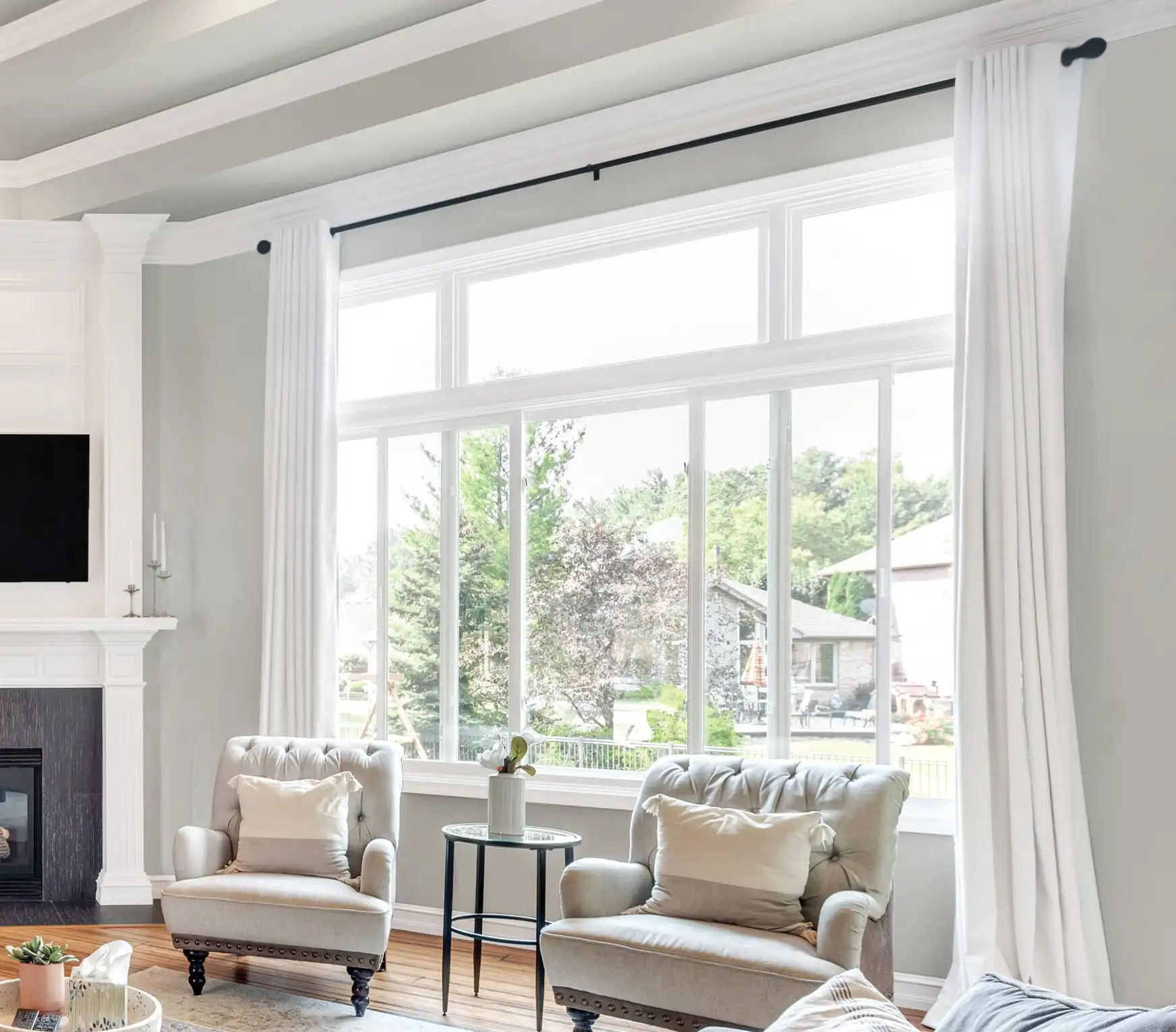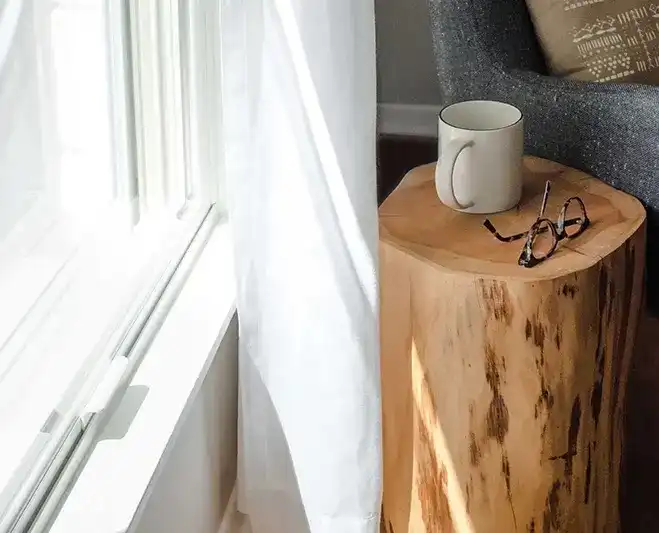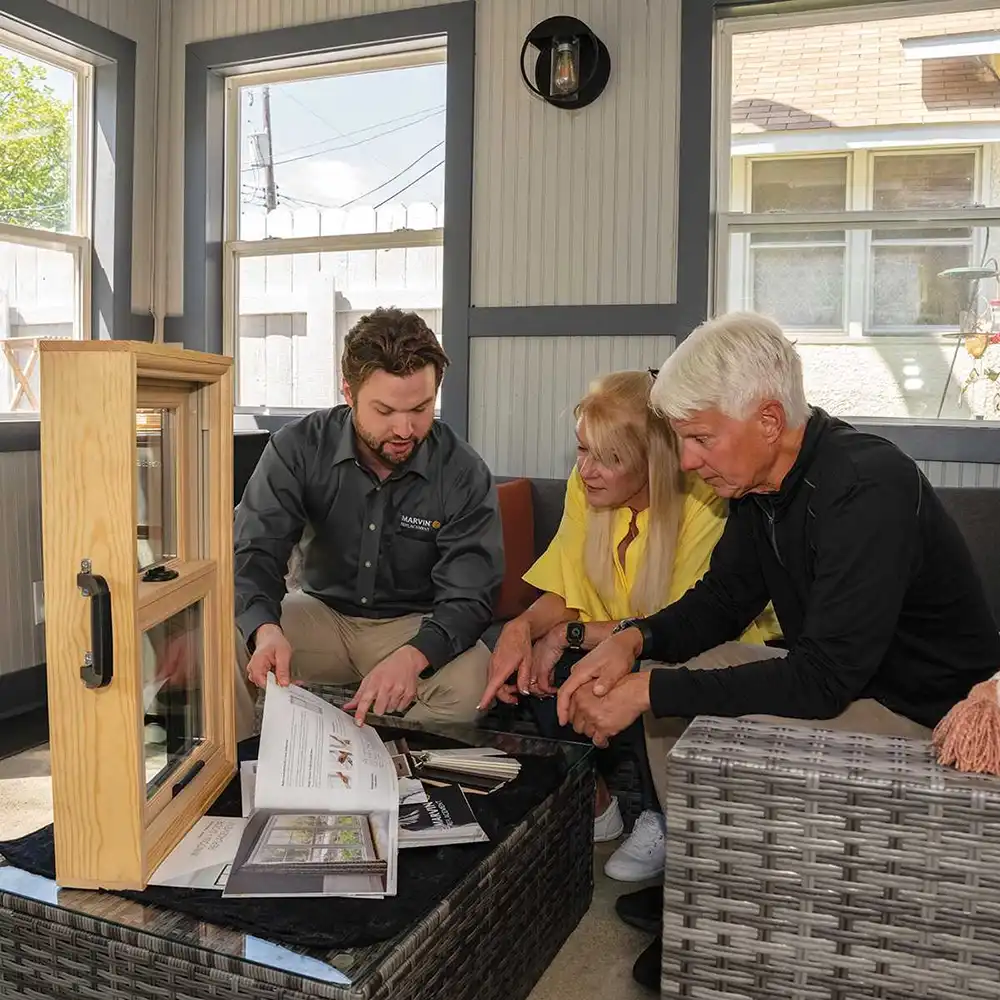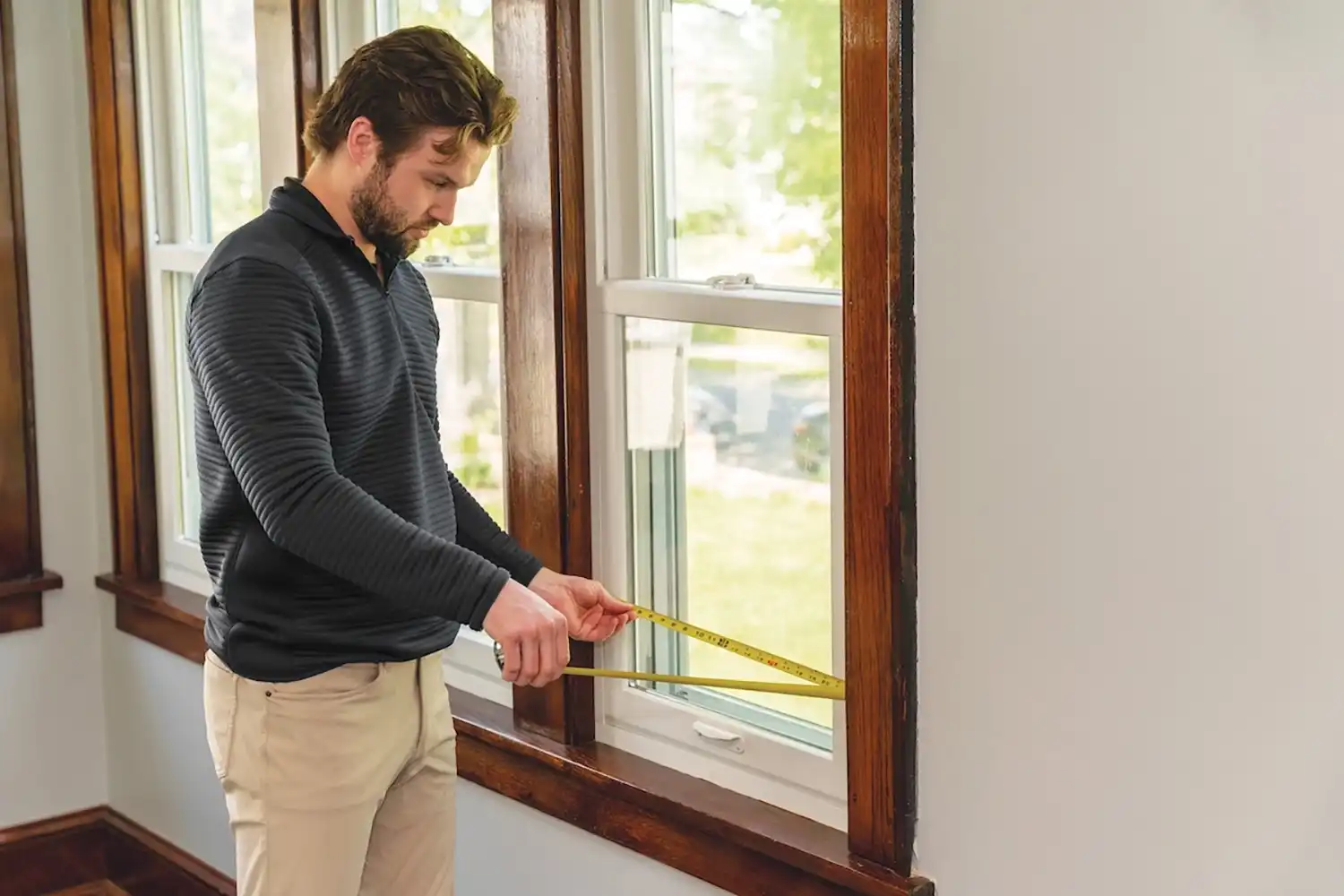
8 February 2024
Repair or Replace Windows: How to Make Windows More Energy Efficient
Energy efficient windows are built with both efficient window glass and frame materials. Depending on the age and condition of your windows, you might have to repair or replace them for better energy efficiency. Find out how to make windows more energy efficient and when to replace windows.
Benefits of Energy Efficient Windows
Energy efficient window benefits include:
Energy savings: Depending on your climate zone, upgrading to ENERGY STAR®-certified windows can save you between $236 to $322 on average annually when replacing single-pane windows.
Comfort: Energy efficient windows can help make you feel comfortable in your home, especially when you replace leaky windows.
Reduce condensation: Condensation that appears between window panes can lead to foggy windows. When you see foggy windows, a seal used to hold an inert, insulating gas between the panes has escaped. Windows use a non-toxic inert gas between window panes. It’s denser than air and can improve the energy efficiency of windows by reducing heat transfer.
Block UV rays: UV rays can damage things like your furniture and carpet, leading to color fading. The metallic coatings energy efficient windows use block UV rays. Marvin Replacement features coating options that block up to 95% of UV rays.
Ways to Make Windows More Energy Efficient
The U.S. Department of Energy (DOE) estimates that 30% of a home’s heating energy gets lost through windows. According to the DOE, 76% of sunlight that falls on standard, double-pane windows turns into heat during the summer. That’s why window replacement can help you improve your home’s energy efficiency.*
Replace drafty windows: Replacing old, drafty windows with energy efficient windows can help you reduce your heating and cooling costs.* Check for window drafts by holding your hand near the top or bottom of the window sash where it meets the frame. If you feel a breeze, you have a draft.
Get windows with double glazing: Marvin Replacement windows have two panes of glass with Low E coatings. Argon gas sits between the panes. It acts as an insulator while the coatings can prevent heat loss or keep homes cool. Different coatings suit different climates. We can help find you the best windows for your climate.
Replace windows with broken seals: Windows with broken seals means the inert gas used in insulated glass units has escaped. The inert gas helps insulate the window to allow the glass to match room temperatures better.
Winterize windows: If you live in a colder climate, you can winterize windows to improve their energy efficiency. Winterizing windows can mean simple maintenance checks or using window winterization kits.
Ways to Reduce Heat Loss Through Windows
If you’re not quite ready to replace your windows, a few simple things might help you reduce heat loss.
Use curtains: Thick curtains with thermal linings can help reduce heat loss. It creates a barrier between your window and the rest of your home. Open curtains or blinds on sunny days. Close blinds or curtains at sunset to keep heat.
Seal windows by placing plastic film over windows: Find a plastic film kit at a home improvement store. It’ll include double-sided tape that you’ll place along the frame. Adhere the plastic film to the tape, trim the film to fit and use a blow dryer to create a seal to prevent heat loss.
Close unused rooms: If you can close the door to unused rooms, you can reduce cold airflow from coming out of the room. It can prevent hot air from entering the room.
Insulated cellular shades: Insulated cellular shades look like blinds. But they usually have four sides and an air pocket in the middle to trap air and act as insulators. The DOE estimates insulated cellular shades can reduce heat loss through windows by 40% or more. During warmer months, they can reduce unwanted solar heat by 60%.
Exterior shutters and shades: Shutters and exterior shades can help reduce the amount of sunlight through a window.
Awnings: Awnings can extend over windows and cast a shadow to decrease the impact of sunlight entering a home. The DOE estimates awnings can reduce solar heat gain in the summer by up to 65% on south-facing windows and 77% on west-facing windows. Awnings work well during warmer months but can increase energy use in the cooler months.
Window caulk and weatherstripping: Window caulk and weatherstripping can age over time and need replacing. Both can help prevent air leaks and make windows more energy efficient.
Home energy audit: What is a home energy audit? A home energy audit pinpoints areas of your home that experience energy loss. A professional will run a blower test to see where air leaks and use tools to detect hot and cold areas. You can use the results to improve your home’s energy efficiency.
*Savings reflects installing ENERGY STAR certified products compared to non-certified when replacing single pane windows based on the average savings among homes in modeled cities. Actual savings will vary by product type, location, method of installation, individual home characteristics, local climate and conditions, utility rates and other factors.
Back to All Articles
You May Also Like

Why Energy Efficiency Matters
Energy efficiency is a term that gets tossed around frequently but what is energy efficiency and why does energy efficiency matter? Energy efficiency can mean doing different things around the house to prevent heat loss or limit the amount of heat that enters a home.
Why Energy Efficiency Matters
How to Choose Energy Efficient Windows
Thinking about ways to make your home more energy efficient? Making your home more energy efficient can improve your home’s heating and cooling performance—while also helping the environment. You can work directly with Marvin Replacement to evaluate energy efficient window options that will work best for your region.
Energy Efficient Windows
Update or Replace Windows?
Determining when it’s time to replace your windows can depend on the specific issue you’re facing. If you’re experiencing a broken window or damaged frame, you’ll likely want to take immediate action – but if you’re looking to refresh your home you might take a little more time to decide.
when to replace windows